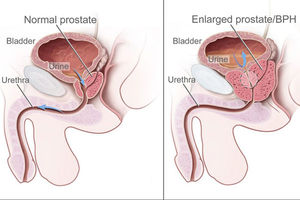Is frequent urination a sign of poor health?

Laxity of the pelvic structures can cause incontinence.
What you need to know:
- Passing urine frequently for a prolonged duration without any identifiable cause may be due to interstitial cystitis.
- This is a condition where, due to unknown reasons, there is persistent inflammation or sometimes there are ulcers in the bladder wall. This makes the bladder overly sensitive and you may not be able to hold a lot of urine. It may be painful to pass urine.
Dear doc,
I have several questions:
1) I have to constantly go to the washroom to urinate. Is it abnormal, a bladder problem or could it be due to a medical condition?
2) What is anorexia, that is, the eating disorder?
3) DNA tests have to be carried out to identify criminals or one's relations or a dead person. What is significance of this?
Alnashir D Walji
Nairobi
Dear Alnashir,
1) Frequent urination
The frequency of passing urine will increase when there is an increase in fluid intake. It also increases during the cold season because the amount of sweat reduces. Frequent urination can also be a symptom of diabetes or a urinary tract infection.
Passing urine frequently for a prolonged duration without any identifiable cause may be due to interstitial cystitis. This is a condition where, due to unknown reasons, there is persistent inflammation or sometimes there are ulcers in the bladder wall. This makes the bladder overly sensitive and you may not be able to hold a lot of urine. It may be painful to pass urine.
It may also be due to an overactive bladder. This means that the bladder wall muscles contract more than usual, making you feel like passing urine more frequently. This may be due to a nerve problem or obesity.
The frequent urination may also be as a result of enlargement of the prostate gland in men, especially if over the age of 45 years. Other symptoms of prostate enlargement include incomplete emptying of the bladder; weak stream and dribbling at the end of urinating; leaking urine; needing to urinate urgently; having to force out urine; pain when passing urine and sometimes blood in urine.
It is advisable to visit a doctor or a urologist to have several tests done like urinalysis, blood sugar, cystoscopy and cystometry (to check the urinary bladder), an ultrasound scan and prostate check-up. Once any identified underlying conditions are treated, then the frequent urination should improve.
Other measures that may help especially for interstitial cystitis and overactive bladder are:
Bladder retraining, by gradually increasing the intervals between urinating over a period of around three months.
Kegel exercises to strengthen the pelvic muscles. This is done by contracting the pelvic muscles as though stopping the flow of urine. To identify these specific muscles, stop urine mid flow when urinating. Contract these muscles for about 10 seconds, 10 times in one set, six to 10 sets in a day.
Monitor fluid intake and take about 1.5 litres during the day, but limit intake after 6pm to avoid waking up at night to pass urine.
Avoid fluid intake when going on a long journey or where there’s no access to a washroom.
Avoid alcohol and caffeine, spicy foods and acidic foods like citrus fruits and tomatoes.
Avoid constipation by taking a high fibre diet because constipation worsens an overactive bladder.
Maintain a healthy weight and engage in physical exercise.
2) Anorexia Nervosa
The word anorexia is a medical term for lack of appetite. The eating disorder is called anorexia nervosa and its features are unhealthy low body weight, a distorted view of one’s weight and body shape, and an intense fear of gaining weight which leads to not eating, eating very little, excessive dieting, eating and then forcing vomiting or misusing laxatives to cause diarhoea, or exercising excessively. The person also obsesses about how they look, always checking the mirror or measuring themselves, constantly complain about being fat or about having fat body parts, even when they are very thin, wear several layers of clothes to cover up and may be irritable and socially withdrawn.
Starvation and very low body weight can lead to low blood levels, dizziness, fainting, headaches, fatigue, weakness, dehydration, low blood pressure, hair breakage, dry skin, sleep disturbances and irregular heartbeat. It can cause complications like problems with the heart, kidney, brain, gastrointestinal system, bone and muscle loss, hormonal changes and electrolyte imbalances. These complications can cause severe disease or even death, and some effects are not fully reversible.
This eating disorder can be managed as a team effort between the doctor, the nutritionist, the mental health professional, the patient and the social support system (family and friends).
3) DNA
DNA refers to a molecule found in the cells of living organisms that carries genetic material that “directs” how an organism will look, function and develop. Part of this genetic material is passed on to offspring, with contributions from both parents, which means that there are similarities between parents and their children, between siblings, and between blood relatives.
When DNA testing is done, a part of the molecule is identified and mapped using the arrangement of its building blocks. This arrangement is unique for each individual, except for identical twins who have a similar DNA arrangement. This arrangement is what is used to compare with another DNA sample to check for similarity or difference. In the case of paternity, or tracing blood relatives, the presence and level of similarity between the DNA of individuals is what is examined.
Send your questions to [email protected]



